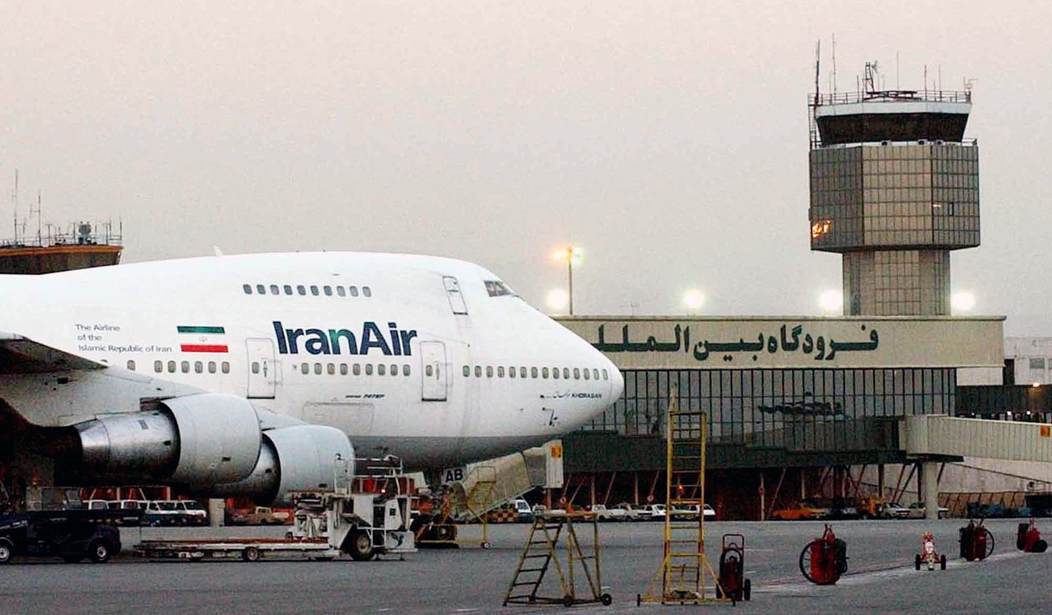WASHINGTON — A divide among lawmakers in the state where Boeing employs its largest share of U.S. workers is expected to grow over a potentially $25 billion deal the aircraft giant struck with Iran.
All of the details are coming from the Iran side, with Boeing simply telling the Associated Press that the company signed the pact “under authorizations from the U.S. government following a determination that Iran had met its obligations under the nuclear accord reached last summer.”
“Boeing will continue to follow the lead of the U.S. government with regards to working with Iran’s airlines, and any and all contracts with Iran’s airlines will be contingent upon U.S. government approval,” the statement said.
IranAir said in a statement that “several big aircraft manufacturing companies made extensive efforts to play active roles in the Iranian market” after the P5+1 deal went into effect as “Iran showed serious determination to renovate Iranian national air fleet.”
“An agreement was consequently signed after Boeing company representatives paid several official visits to Iran and held effective talks with IranAir official… if both sides could obtain proper permissions from their governments IranAir will hopefully be able to purchase aircraft.”
The state-owned carrier expressed interest in the “new generation” of Boeing 737s and 777s.
“It is noteworthy that the so-called agreement will not be finalized and practiced unless both governments grant permissions to place an order to purchase airplanes,” IranAir added.
State Department press secretary John Kirby told reporters today that the U.S. government “welcomes” Boeing’s announcement of the deal that “involves the type of permissible business activity envisioned in the JCPOA.”
“Boeing has been in close contact with the State Department regarding this deal. We committed, as you know, to license sales of civil passenger aircraft and will continue to implement this in all of our JCPOA commitments,” Kirby said.
“The JCPOA provides an opening for civil aviation companies, including American companies, to pursue legitimate commerce with Iran and we note reports of progress in the aviation sector, which is good for both the economy and for public safety.”
Kirby was asked if there are any other instances of a U.S. aircraft company selling airlines to a state sponsor of terrorism.
“I’m not aware of any, but again, let me stress that the JCPOA states that any license for such aviation sales, and this is a quote, will include appropriate conditions to ensure that licensed activities do not involve, no licensed aircraft goods or services are resold or retransferred to any person on the SDN, the special designated list,” he replied.
“Should the United States determine that licensed aircraft goods or services have been used for purposes other than exclusively civil aviation end use or have been resold or have been retransferred to persons on the designated list, the United States would view this as grounds to cease performing its commitments under the aviation section in whole or in part.”
Rep. Rick Larsen (D-Wash.) called the announcement “good news for Boeing” that “hopefully means more jobs for Washington state.”
“In the coming days the U.S. government will be taking a hard look at the specifics of the deal to ensure it is consistent with both U.S. interests and those of our international allies and I’ll be tracking those developments closely,” Larsen said.
A month ago, Washington state GOP Reps. Dave Reichert, Cathy McMorris Rodgers and Dan Newhouse sent a letter to Boeing President Dennis A. Muilenburg and Airbus President Fabrice Brégier urging the aviation giants to reconsider dealing with the Islamic Republic of Iran.
“We appreciate your efforts to provide opportunities and good-paying jobs to workers in Washington State and across the nation,” the lawmakers wrote. “At the same time, we took an oath to protect and defend the United States of America.”
“…It is our hope that when your respective companies further consider doing business with Iran, you act cautiously and do not put business decisions ahead of the safety of our nation and our friends abroad.”
Reichert said today he’s “disappointed a company that has given so much to our region and the country through its ingenuity and leadership has decided to sign a deal with Iran, who continues to be the world’s largest state-sponsor of terror and has proven time and time again to be undeserving of our trust.”
“Companies doing business with Iran should keep in mind the enormous risk to the American people and our allies,” the congressman added.
A GOP lawmaker in the state where Boeing is headquartered, along with the chairman of the House Financial Services Committee, asked Muilenburg in a letter last week how the company can even ensure that its planes will not be used to further terrorist activity.
“Iran’s commercial aviation sector is deeply involved in supporting hostile actors,” Reps. Pete Roskam (R-Ill.) and Jeb Hensarling (R-Texas) wrote. “The Islamic Revolutionary Guard Corps (IRGC) systematically uses commercial aircraft to transport troops, weapons, military-related parts, rockets, and missiles to hostile actors around the world, including, but not limited to, Hezbollah, Hamas, Islamic Jihad, the Houthi Rebels in Yemen, and the Bashar Al-Assad Regime in Syria.”
“These terrorist groups and rogue regimes have American blood on their hands. Your potential customers do as well.”
IranAir, they noted, was “quietly deleted” from the Treasury Department’s sanctions list “in what was widely viewed as a diplomatic concession to Iran.”
Roskam and Hensarling asked Boeing to answer a number of questions about the dealmaking process and the agreement by July 1.








Join the conversation as a VIP Member